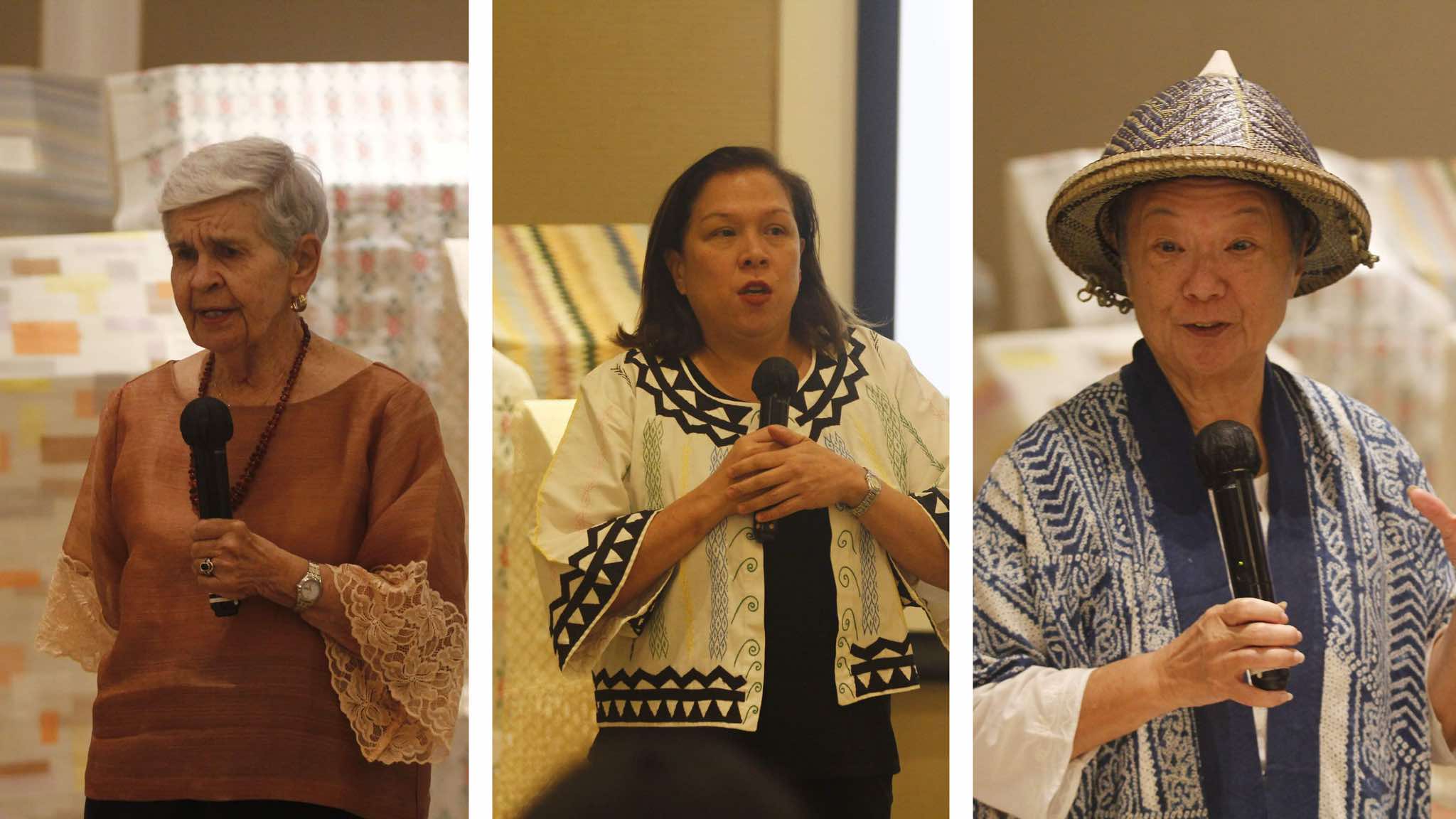Here's what to expect at the 14th Likhang Habi Market Fair
For this year's edition, the market fair aims to go big with its roster of Filipino artisanal brands, weaving competitions, and Sponsor a Weaver program
By John Legaspi
Since it started in 2009, the Likhang Habi Market Fair has been on a mission to champion the Philippines' weaving heritage by bringing it closer to Filipinos through its curated display. What began with just a small group of vendors has grown over the years, with grassroots communities from Luzon, Visayas, and Mindanao joining in to promote their artisanal goods and crafts. This time, the fair, led by Habi: The Philippine Textile Council, puts the spotlight on the hands that keep the Philippines’ weaving heritage alive and on topics of sustainability.

This year’s lineup includes weavers, artisans, designers, and brands from all over the country. Vendors come from Luzon, Visayas, and Mindanao—Cordillera, Zamboanga, Ilocos, SOCCSKSARGEN, Negros, Bangsamoro, and more. But the Likhang Habi Market Fair experience is more than just shopping for textiles, garments, bags, home decor, jewelry, and other special creations; it also offers a chance for people to learn more about the crafts and meet the makers behind them.
“We expanded from 12 booths to 20, and then eventually to about 50. Now we have 100,” says Habi founder and chairman emeritus Maria Isabel “Maribel” Ongpin. “Everybody is waiting for our fair this year, and I hope they'll wait again next year.”
Painting with the Earth’s palette
With the theme “Earth To Loom: Celebrating Natural Dyes in Philippine Textiles,” this year’s Likhang Habi Market Fair aims to keep the conversation about sustainability going by focusing on natural dyes. Although not everything at the fair “can be dyed naturally or will be dyed naturally,” its theme mirrors the growing trend among consumers and creators regarding conscious purchasing and production.
“I think it is important because people all around the world are talking about the environment and sustainability. You have to imagine that using chemical dyes, most of these are just dumped in rivers,” Habi president Mia Villanueva tells Manila Bulletin Lifestyle. “Using natural dyes is not new to the Philippines, but the idea is not familiar to many Filipinos. We have the ability and the resources to do it.”
To further educate people about the process and wonders of natural dyes, the fair will feature workshops demonstrating their use. One of the activities centered on natural dyes will be led by Kat Palasi, a textile artist and creative entrepreneur from La Trinidad, Benguet. Additional sessions on sustainability will also take place during the three-day fair in partnership with Fashion Revolution Philippines.
Filipino tapestries
Sharing the spotlight with local artisans and merchants during the fair are entries to the seventh Lourdes Montinola Piña Weaving Competition and submissions to the third Eloisa Hizon-Gomez Abaca Weaving Competition. The woven tapestries will be exhibited within the fair area for patrons and textile aficionados to see and appreciate.
To keep young weavers in the loop, Habi has created a category in its Piña Weaving Competition for weavers under 30 years old. “We were quite surprised by the number of young people who joined,” Adelaida Lim, Habi president emeritus, says. “That indicates that it's now in the hands of the next generation and that it's not going to disappear with the death of older practitioners.”
The winners of the Piña and Abaca competitions will be announced on Oct. 19 and 20, respectively.
Artisans in need of assistance
Apart from the bazaar and weaving competition, this year’s fair also introduces the Sponsor A Weaver program. This initiative allows people to donate and support weavers in continuing their crafts, from aiding them in participating in the market fair to helping with material costs. The program aims to empower these communities by helping them develop into independent entrepreneurs. Through generous donations received at its kickoff, the fair is sponsoring three weavers: Agustin Sudaw, Hininang Tu, and Jie Tboli Designs.
“What's valuable to me is watching the vendors grow. It's not really only about us and how our fair has grown,” Mia says. “It's more about seeing how the grassroots weavers have expanded to become entrepreneurs in Manila.”
The 14th Likhang Habi Market Fair is set to take place at the Glorietta Activity Center in Makati City from Oct. 18 to 20, 2024. To know more about it, visit habiphilippinetextilecouncil.com and @habicouncil on Facebook and Instagram.